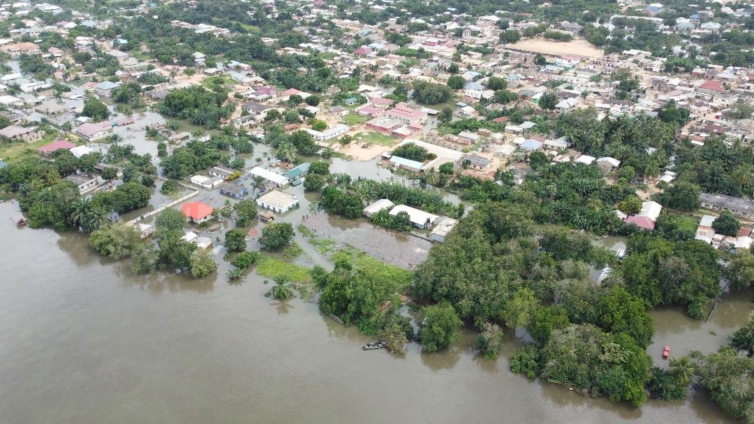
Audio By Carbonatix
If another major disaster were to occur in Ghana, the probability for the government to effectively manage it is low.
This is according to a policy brief by Col. Festus Aboagye (Rtd), which suggests deep-seated vulnerabilities in Ghana’s disaster management framework, along with a critical lack of foresight, preparation, and coordinated action.
The policy brief, which used the Akosombo Dam spillage as a case study, highlighted the urgent need for a complete overhaul of Ghana’s approach to disaster preparedness and response.
Titled "From National Asset to National Ignominy: Ghana’s Akosombo Dam Disaster Exposes Government Negligence and Civil Society’s Heroic Response," the brief revealed a demand for a paradigm shift in disaster management.
According to the brief, although the spillage was controlled, it still managed to cause extensive damage to communities in the Lower Volta Area, impacting North Tongu, South Tongu, Central Tongu, and other districts.
However, the plight of these affected individuals was further worsened by government's lack of recovery response, even after a year.
It also pointed out that inadequate risk assessment, insufficient resource allocation, a lack of comprehensive planning, and delayed action were among the factors contributing to the government's failure to manage the crisis.
Additionally, uncoordinated responses and the government's refusal to accept responsibility for the crisis were also factors.
But for stakeholders such as Members of Parliament (MPs), the media, civil society organisations, private entities, and individuals, many of those affected would still be displaced, with little to show in terms of recovery.
On this basis, the brief recommended several steps for the government to be better prepared for future disasters. These include enhancing early warning systems by investing in advanced multi-channel weather forecasting and early warning dissemination systems to ensure timely and accurate information reaches all stakeholders.
It also suggested improving water management practices to prevent future flooding and undertaking community engagement and education programs to raise awareness about disaster preparedness and response.
Additionally, the brief recommended strengthening public-private partnerships to leverage resources, expertise, and technology from the private sector for disaster preparedness and response efforts.
Read policy brief:
Latest Stories
-
Ghana is rising again – Mahama declares
2 hours -
Firefighters subdue blaze at Accra’s Tudu, officials warn of busy fire season ahead
3 hours -
New Year’s Luv FM Family Party in the park ends in grand style at Rattray park
3 hours -
Mahama targets digital schools, universal healthcare, and food self-sufficiency in 2026
3 hours -
Ghana’s global image boosted by our world-acclaimed reset agenda – Mahama
3 hours -
Full text: Mahama’s New Year message to the nation
3 hours -
The foundation is laid; now we accelerate and expand in 2026 – Mahama
4 hours -
There is no NPP, CPP nor NDC Ghana, only one Ghana – Mahama
4 hours -
Eduwatch praises education financing gains but warns delays, teacher gaps could derail reforms
4 hours -
Kusaal Wikimedians take local language online in 14-day digital campaign
5 hours -
Stop interfering in each other’s roles – Bole-Bamboi MP appeals to traditional rulers for peace
5 hours -
Playback: President Mahama addressed the nation in New Year message
5 hours -
Industrial and Commercial Workers’ Union call for strong work ethics, economic participation in 2026 new year message
7 hours -
Crossover Joy: Churches in Ghana welcome 2026 with fire and faith
7 hours -
Traffic chaos on Accra–Kumasi Highway leaves hundreds stranded as diversions gridlock
7 hours

